Faculty
UCLA Regenerative Musculoskeletal Medicine Training Program
The UCLA faculty for this training program are listed below along with their respective areas of research concentration and intellectual excellence. Trainees working with these faculty are not limited to these thematic groups nor are trainees limited to these faculty. The training program is dynamic and benefits from the incorporation of additional members, thus, potential faculty are urged to contact one of the Training Program Directors, John S. Adams, Nicholas M. Bernthal or Karen M. Lyons, for more information.
Program Training Faculty and Basic, Translational and/or Clinical Mentors. Listed below are the extramurally-supported, experienced basic (B), translational (T) and clinician scientist (C) training faculty. The academic orthopaedic surgeons (O) who provide real life perspective are also presented. Note that these designations are not mutually exclusive.

Denise R. Aberle, MD
(T,C) is an emeritus faculty member. Her expertise is in use of i) semantic and quantitative image features for cancer diagnosis, ii) machine learning for cancer characterization, and iii) associations between clinical, imaging and molecular phenotypes in cancer characterization. Available as a co-Mentor.
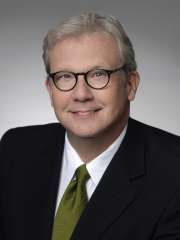
John S. Adams, MD
(B,T,C) is an emeritus faculty member in Orthopaedic Surgery. He has expertise in Basic & Translational Aspects of Vitamin D Synthesis, Metabolism & Molecular Mode of Action in the Skeleton & Extraskeletal Tissues. Available as a co-Mentor.

Nicholas M. Bernthal, MD
(B,T,C,O) is a Professor in Orthopaedic Surgery, representing both the funded clinician scientist and the academic orthopaedic surgeon. He is interested in the interplay between bacteria, host, and implant in the bone microenvironment.
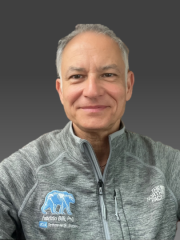
Fabrizio Billi, PhD
(B,T) is Associate Professor in the Departments of Orthopaedic Surgery and Bioengineering. He has expertise in materials and medical devices for orthopaedic applications. He is newly appointed to the NIH-funded basic/translational training faculty of the T32 due to his expertise in engineering, a new thrust for our T32. He has a long track record in translational orthopaedic research performed collaboratively with orthopaedic surgeons and engineers.
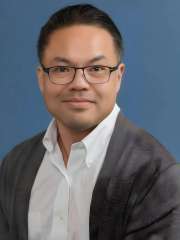
Alex Bui, PhD
(T) is Professor of Radiological Sciences, Bioengineering, and Bioinformatics at UCLA and director of the informatics program in the UCLA CTSI; Dr. Bui’s research includes methodology and applications of data science to biomedical research in areas related to distributed information architectures. Trainees will be exposed to development of probabilistic modeling methods in “big data” sets and techniques in data visualization and for accelerating algorithms used in healthcare.
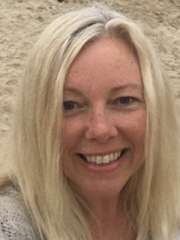
Catherine Cahill, M.Sc., Ph.D.
Catherine Cahill, PhD (B,T,C) is Professor of Psychiatry and Behavioral Sciences in the DGSOM at UCLA. She is new to the T32. She has more than 25 years’ experience in pain research. Trainees working with her will primarily focus on understanding mechanisms of chronic pain and opioid analgesia, tolerance, dependence and addiction. Her research spans both basic science and human research.
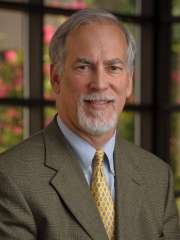
Stephen C. Cannon, MD, PhD
(B,T) is Professor and Chair of Physiology in the DGSOM at UCLA. He is new to the T32. His research focuses on muscle dysfunction caused by inherited channelopathies. Trainees can engage in state of the art electrophysiological and pharmacological approaches, novel computational models of muscle excitability, and genetically engineered mice to test pre-clinical therapeutic strategies.
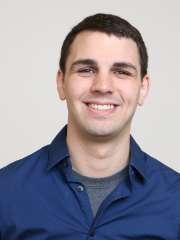
Tyler Clites, PhD
(T) is Assistant Professor in Orthopaedic Surgery and Aerospace and Mechanical Engineering in the Samueli School of Engineering. He is new to the T32. Trainees working with Dr. Clites will focus on rehabilitation and augmentation of human movement ability, combining surgical and mechanical design to co-develop body and machine in pursuit of bionic performance that is superior to what is possible with mechanotronics alone.
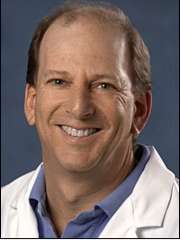
Daniel Cohn, PhD
(B,T) is Professor of Orthopaedic Surgery, Human Genetics, Pediatrics and Molecular, Cell and Developmental Biology at UCLA. Dr. Cohn is the Co-Director of the International Skeletal Dysplasia Registry, the largest referral source in the world for diagnosis and research on human skeletal disorders. Trainees will gain molecular expertise in studying inherited skeletal disorders, especially those affecting children.
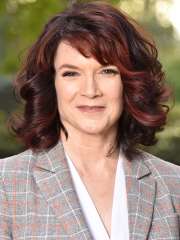
Rachelle Crosbie-Watson, PhD
(B,T) is Professor and Chair of Integrative Biology and Physiology and Neurology at UCLA. As the Director of the Muscle Cell Biology, Pathology, and Therapeutics T32 at UCLA, Dr. Crosbie is a crucial contributor to the bone: muscle interface for our T32 in Regenerative Musculoskeletal Medicine. Trainees working with Dr. Crosbie will learn to interrogate molecular mechanisms of extracellular matrix ligands and receptors in normal and dystrophic muscle.

Sarah M. Dry, MD
(T,C) is Chair of Pathology and Laboratory Medicine and Director of Anatomic and Surgical Pathology. Dr. Dry is new to the T32 due to her expertise in outcomes research and in building biorepositories, molecular imaging and translational pathology shared resources. Her wet lab activities focus on osteonecrosis of the jaw (ONJ). Trainees in the Dry lab can participate in projects on the pathology and therapies for ONJ.
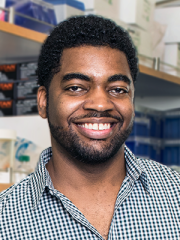
D'Juan Tyree Farmer, PhD
(B,T) is Assistant Professor of Molecular, Cell & Developmental Biology, with a joint appointment in Orthopaedic Surgery. He is new to the T32. His research aims to decipher the inter-cellular and intra-cellular mechanisms that drive craniofacial development by dissecting tissue interactions, mechanical cues, and gene regulatory networks that establish and maintain skeletal progenitors during embryonic and postnatal development.

Noah C. Federman, MD
(T,C) is Professor of Pediatrics and Orthopaedic Surgery. He specializes in the diagnosis and care of children with sarcoma. He is also the director of the UCLA CTSA Clinical and Translational Research Center and the CIRM-supported Alpha Clinic that brings stem cell and gene therapy to the first-in-man stage. Trainees will participate in Phase 1 clinical trials using these novel therapeutic tools.

Sharon L. Hame, MD
(O) is Professor and Director of Medical Student Education in Orthopaedic Surgery. Dr. Hame is new to the T32, owing to her expertise in health services research. She is a representative of the group of academic orthopaedic surgeons in our “T32 mentorship bubble”. Her research focus is population-based work investigating injury risk and prevention in college athletes. She has organized and directed several multi-institutional investigations.

William Hsu, PhD
(T) is Professor in the Department of Radiological Sciences, Bioinformatics, and
Bioengineering. He is new to the T32. The mission of his NIH funded work is to augment physician decision making by providing accurate and actionable information through the curation and integration of longitudinal, multimodal (e.g., clinical, imaging, molecular) datasets and by exploring novel applications of validated artificial intelligence (AI) and machine learning (ML).
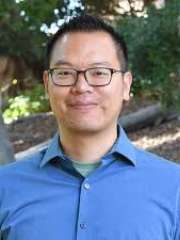
Jimmy Hu, Ph.D.
(B,T) is Assistant Professor in the School of Dentistry. He is new to the T32. His lab’s main NIH-funded research focus is to elucidate the functional roles of tissue architecture and mechanical forces in controlling craniofacial development and adult dental regeneration. Trainees working with Dr. Hu will gain an understanding of the integrated genomic and single cell transcriptomic approaches used in skeletal stem cell regenerative events.

Kristofer J. Jones, MD
(C,O) is Associate Professor of Orthopaedic Surgery at UCLA. He is a new addition to the T32, serving as a clinical trialist and academic orthopaedic surgeon in our “T32 mentoring bubble”. Dr. Jones is focused on regeneration of cartilage after traumatic injury. Trainees working with Dr. Jones can participate in biomechanics projects around osteochondral grafts and biologic assessment of graft material.

Andrea Kasko
(B,T) is Professor of Bioengineering at UCLA and Chair of the Polymer Chemistry
Division of the American Chemical Society. Her interests include the synthesis and characterization of novel polymeric materials for use in biomedical drug delivery and tissue engineering and in biomimetic materials, including glycomimetics of antimicrobial peptides to address issues of multi-drug resistance.

Donald Kohn, MD
(B,T,C) is Professor of Pediatrics, Microbiology, Immunology & Molecular Genetics,
Pediatrics and Molecular & Medical Pharmacology at UCLA. He is new to the T32 and an NIH and CIRM supported world leader in gene transfer and expression in hematopoietic stem cells. The Kohn lab will focus on development and clinical application of gene therapy for blood cell diseases using CRISPR-modified genes in hematopoietic stem cells and developing new vectors for regulated gene expression.

Thomas J. Kremen, MD
(B,T,C) was recruited to DGSOM in 2018 as Assistant Professor in the Department of Orthopaedic Surgery. He is a new addition to the T32, currently in the third year of his VA Career Development Award and fits with the new “T32 mentorship bubble” as an academic orthopaedic surgeon. Trainees working with Dr. Kremen focus on regeneration of tendons and ligaments, using a progenitor cell:biomimetic scaffold therapeutic intervention to decrease post-traumatic osteoarthritis.

Justine C. Lee, MD, PhD
(B,T,C) is Associate Professor of Surgery in the Division of Plastic and Reconstructive Surgery in the DGSOM and new to the T32. Her clinical practice inspires her active basic research program, which focuses on development and application of nanoparticulate mineralized collagen glycosaminoglycan (MC-GAG) materials for calvarial reconstruction. Trainees can participate in a true bench to bedside research program to enhance bone regeneration.

Elizabeth L. Lord, MD
(O) is Assistant Professor in Orthopaedic Surgery. A spine surgeon and new to the T32, she is representative of the group of academic orthopaedic surgeons in our “T32 mentorship bubble”. Dr. Lord’s research focus is on bone biology and bone healing in spinal fusion. Trainees working with Dr. Lord will receive training in small animal models to investigate the impact of cannabinoids on bone healing.

Daniel C. Lu, MD, PhD
(B,T,C) is a Professor in the departments of Neurosurgery and Orthopaedic Surgery. His research is focused on strategies to sensitize the interneuronal circuitry within the spinal cord through epidural electrical stimulation and pharmacological agonist therapy.
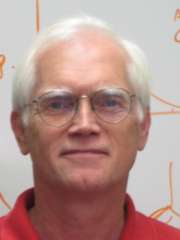
Aldons Lusis, PhD
(B,T) is Professor, Departments of Medicine, Human Genetics, and Microbiology, Immunology, and Molecular Genetics. His lab focuses on identification and analysis of genes and networks contributing to multigenic disease. Trainees will use cutting-edge bioinformatics, genetics, and basic cell biology technologies in a “systems genetics” approach that integrates high throughput transcriptomic/proteomic data with clinical traits, in segregating mouse populations.
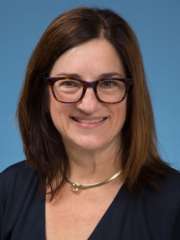
Karen Lyons, PhD
(B,T) is a Professor in the departments of Orthopaedic Surgery and Molecular, Cell and Developmental Biology, representative of the group of NIH-funded basic/translational scientists. Her interest is the development of musculoskeletal tissues.
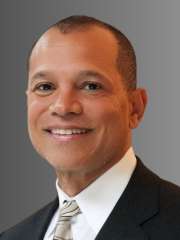
Keith C. Norris, MD, PhD
(T,C) is Professor of Medicine and new to the training grant, owing to his pioneering work in minority health services research. He is internationally recognized for his research efforts on community-partnered research and health policy with a focus on reducing health disparities and promoting community partnerships to increase participation of underrepresented minorities in clinical trials.
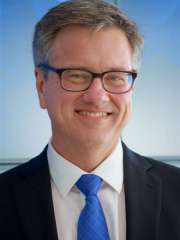
Jeff F. Miller, PhD
(B,T) is Professor and Chair Emeritus of the Department of Microbiology, Immunology and Molecular Genetics at UCLA. He is member of the National Academy of Sciences. Dr. Miller currently serves as the Director of the California Nano Systems Institute (CNSI), a key research core facility for our trainees. He is new to T32 faculty. Trainees in Dr. Miller’s program will focus on evolution and adaptation of pathogens in the context of microbe-host interactions in bone.

Aurelia Nattiv, MD
(C) is Clinical Professor in the Departments of Orthopaedic Surgery and Family Medicine
who specializes in the areas of i) prevention and treatment of stress fractures and bone stress injuries in young athletes and ii) bone health/osteoporosis and the female athlete triad. She is new to the T32. Trainees in the Nattiv research program will help design extramurally funded clinical trials.

Andre Nel, MBChB, PhD
(B,T) is Distinguished Professor of Medicine and Director of Research in the California Nano Systems Institute (CNSI) at UCLA. He is an excellent example of the NIH- and NSF-funded clinician scientist in our T32 “”mentorship bubble”. His work on nanotherapeutics and smart-designed nanocarriers for cancer, immunology and regenerative medicine represents the bridge this T32 has built between the disciplines of material science and bioengineering for treatment of musculoskeletal disease.
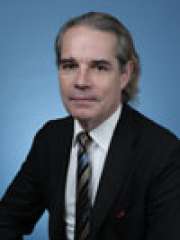
Bruno Peault, PhD
(B,T) is Professor in the Department of Orthopaedic Surgery. He is new to the T32. His
laboratory studies the biology of perivascular stem cells (PSC) and their potential role in tissue development, renewal, fibrosis, and repair. He is recognized for the discovery that pericytes are multipotent mesenchymal precursor cells that can be made to demonstrate tissue-specific properties. Trainees in his lab will focus their efforts on the use of PSC for bone and cartilage regeneration.

Mateo Pellegrini, PhD
(B,T) is Professor of Molecular, Cell and Developmental Biology. A biophysicist, Dr. Pellegrini’s research centers on the development of novel computational approaches to analyze large scale genomic and epigenomic data. His lab was instrumental in the development of whole genome bisulfite sequencing. Trainees will focus on the development of novel tools to analyze sequencing data sets from latest generation sequencers.

Frank Petrigliano Jr., MD
(T,C,O) is Professor of Orthopaedic Surgery. He is new to the T32. He is an extramurally funded surgeon scientist and orthopaedic surgeon in sports medicine. He is a new faculty member in the Department hired under the plan of our new Chair to place a surgeon scientist in a leadership role in a clinical division. Trainees working with Dr. Petrigliano will train in the use of progenitor cells, biologic agents and scaffolds to prevent or reverse cartilage injury due to trauma, disease or aging.
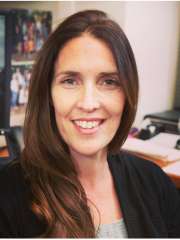
April Pyle, PhD
(B,T) is Professor of Microbiology, Immunology and Molecular Genetics, a member of the Broad Center of Regenerative Medicine and Stem Cell Research and the Center for Duchenne Muscular Dystrophy (DMD). The Pyle lab is focused on understanding how skeletal muscle stem cells arise and generation of CRISPR correction strategies for DMD. Trainees will focus on understanding the role of intrinsic and extrinsic signals in muscle differentiation from human pluripotent stem cells.

Albert Shieh, MD
(T,C) is an Assistant Professor of Medicine in the Divisions of Endocrinology and Geriatrics with MPH and TPTS masters-level training in conducting and analyzing observational/intervention studies. Trainees in his lab will focus on identifying clinical/ biochemical risk factors for rapid menopause-related bone loss, exploring whether gut permeability increases during the menopausal transition, contributing to hypo-estrogenic bone loss and investigating the effects of insulin resistance on bone.

Andrea Siekhaus, PhD
(B,T) is Associate Professor on the Department of Molecular, Cell and Developmental Biology and new to the T32. Her NIH funded lab studies the means by which immune cells infiltrate and function in tissues during development and disease. Fellows working in her lab will use a combination of diverse techniques to identify the means by which inflammatory cells invade tissue.

Chia Soo, MD
(B,T,C) is Professor of Surgery and Orthopaedic Surgery and Research Director for UCLA’s Operation Mend for wounded warriors. Her work focuses on musculoskeletal tissue regeneration and orthobiologic drug and device creation. Trainees will join efforts in her research program to systematically integrate osteoinductive factors and stem cells into osteconductive scaffolds.

Nelson F. SooHoo, MD
(O) is Professor in the Department of Orthopaedic Surgery. Dr. Soohoo is new to the T32 faculty, owing to his work on health services research in orthopaedics. He is the department’s pioneer in the use of PROMIS for patient reported outcomes. Trainees will employ machine learning tools to capture clinically important information from local, regional and national population-based datasets. He serves as a key academic orthopaedic surgeon in our “T32 mentorship bubble”.
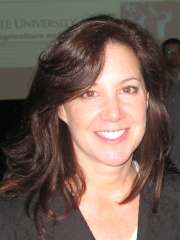
Melissa Spencer, PhD
(B,T) Dr. Spencer is Professor of Neurology and a Director of the Neuromuscular Program at UCLA. Her research program focuses on understanding the molecular basis of the muscular dystrophies. Trainees working with Dr. Spencer will join a team science research effort that provides an incredible mentoring environment for preclinical and clinical work in muscle and human musculoskeletal disease states.

Sotirios Tetradis, DDS, PhD
(B,T,C) is Professor and Senior Associate Dean in the UCLA School of Dentistry. He is an example of the NIH-funded dental surgeon scientists in our “T32 mentorship bubble”. Dr. Tetradis works in the realm of mineralized tissue biology using of a small animal model for bisphosphonate-related osteonecrosis of the jaw. Trainees will have an opportunity to use this model in translational studies aimed at prevention and treatment of this disease.

James G. Tidball, PhD
(B,T) is Distinguished Professor of Integrative Biology and Physiology at UCLA, and representative of the elite group of NIH-funded basic/translational scientists in our “T32 mentorship bubble”. Trainees in the Tidball lab will study the mechanistic role inflammatory cells play in muscle injury and how to manipulate interactions between skeletal muscle and the immune system to enhance muscle regeneration.

Yin Tintut, PhD
(B,T) is Professor of Medicine in the division of cardiology in the DGSOM at UCLA. Her research focuses on changes in microarchitecture of aortic mineral deposits that increases plaque stability. Her findings show that PTH changes in microarchitecture of aortic mineral deposits preventing myocardial infarction. Trainees will participate in transgenic mouse-based studies investigating mechanisms by which oxidative inflammatory lipids inhibit PTH signaling in the vessel wall.

Cun-Yu Wang, DDS
(B,T) is the No-Hee Park Professor and Chair of the Division of Oral Biology and Medicine in the UCLA School of Dentistry. Trainees will use state-of-the-art molecular, genetic, and epigenetic approaches to investigate i) mechanisms regulating mesenchymal stem cell function, ii) Wnt-mediated oncogenesis in cancer stem cells, and iii) how osteoclast activity and NF-κB-directed oral inflammation are induced by periodontal pathogens and metabolic factors in periodontitis.

Lauren E. Wessel, MD
(C.O) is Assistant Professor in Orthopaedic Surgery at UCLA and new to the T32 as a junior mentor. Trainees in her research program will work to codify a longitudinal, patient-centered machine learning diagnostic and treatment program and the delivery of care for patients for upper extremity tumors. Her organized approach to upper extremity sarcomas is based on the fact that current practices of unplanned resections of upper extremity sarcomas lack consensus on approach to reconstruction.

David Wong, DMD, DMSC
(B,T,C) is Distinguished Professor in the UCLA School of Dentistry and the Director of the Center for Oral/Head & Neck Oncology Research. He is new to the T32 and an outstanding example of the NIH-funded dental clinician scientist in our “T32 mentorship bubble”. Trainees in the Wong lab will work to define the utility of the proteome, transcriptome, metabolome and microbiome in human saliva diagnostic biomarkers for systemic disease.
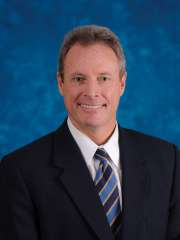
Michael R. Yeaman, PhD
(B,T) is Professor of Medicine and Director of the Institute for Infection & Immunity at Harbor-UCLA Medical Center. He is new to our training faculty. The research focus of his trainees will be to elucidate the relationship between microbial infection and the host immune response in order to develop innovative anti-infective and immunotherapeutic strategies through the use of novel animal models and imaging tools to investigate the mechanisms underlying protective immunity.